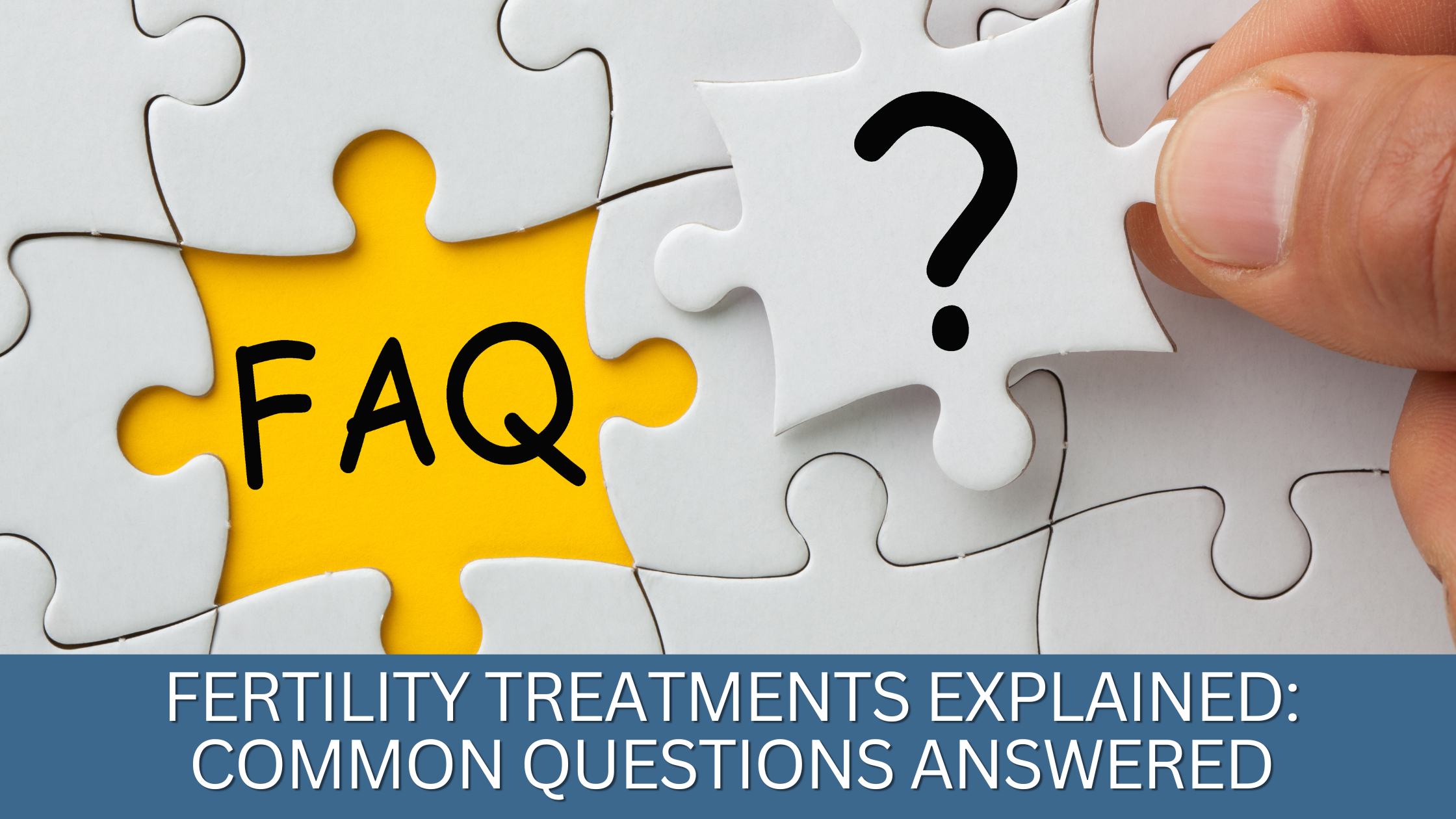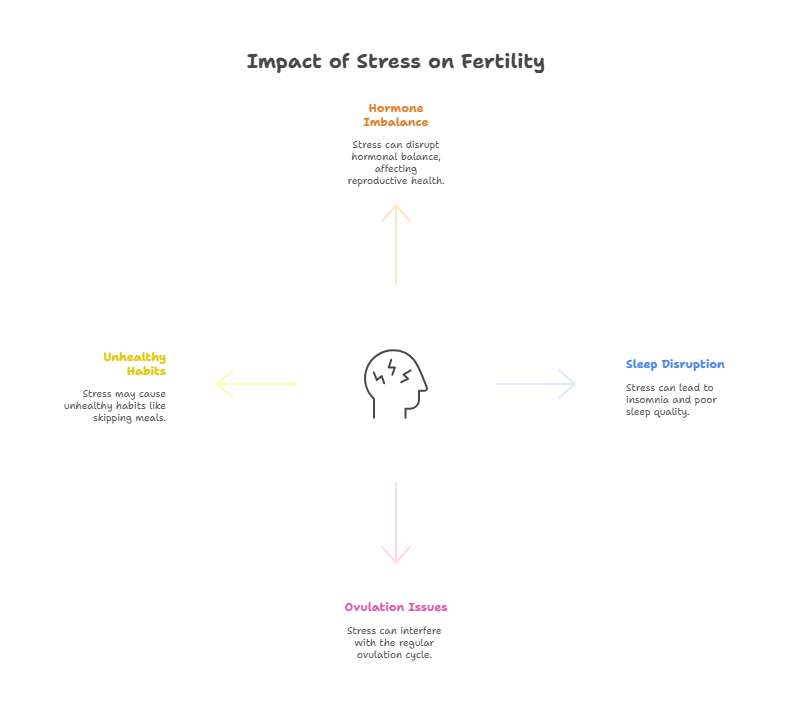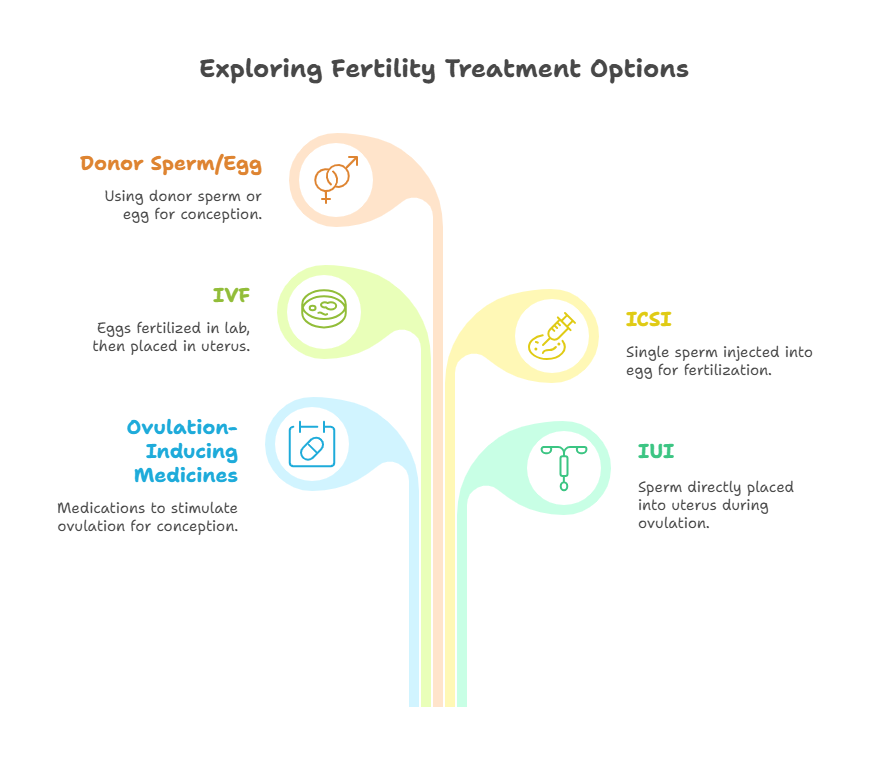
Starting a family is one of the most personal decisions anyone can make. And when it does not happen as expected, the uncertainty can feel overwhelming. You may find yourself asking questions you never thought you would need to ask. But you are not alone, according to the World Health Organization (WHO), “ approximately one in every six people of reproductive age worldwide experience infertility in their lifetime.”
Whether you are just beginning to explore fertility options or already thinking about treatment, you probably have a few concerns on your mind. This blog answers the most common questions we hear at different stages of the journey. From early awareness to serious decision-making, we hope this helps you feel more informed and supported.
Frequently Asked Questions About Fertility Treatments
When should I see a fertility specialist?
If you have been trying to get pregnant for over a year and have not been successful, it may be time to speak with a fertility doctor. For those over the age of 35, many doctors recommend getting evaluated after six months. If you already have a known condition like PCOS or low sperm count, you may want to speak with a specialist even sooner.
What are the basic fertility tests for men and women?
The first round of fertility testing is fairly straightforward. For women, doctors usually check hormone levels and look at ovulation patterns. They might also do an ultrasound to get a better view of the uterus and ovaries. For men, a semen analysis is commonly done to check sperm count, shape, and movement.
Can stress affect fertility?
Stress alone may not cause infertility, but it can make things harder. High stress can affect hormone levels, sleep, and even ovulation. It may also lead to habits like skipping meals or losing sleep, which can impact health in other ways. Many people find that talking to a counsellor, practising yoga, or taking regular breaks helps them cope better.

What lifestyle changes can improve fertility naturally?
Small changes can make a big difference. Eating well, getting regular exercise, and keeping stress under control can help. Limiting alcohol and quitting smoking are also important. In some cases, improving sleep and cutting back on processed foods can support overall reproductive health for both partners.
Is age really a factor in fertility?
Age does play a role, especially for women. Fertility usually starts to decline in the early thirties and drops more sharply after the age of 35. For men, the effect of age is more gradual, but still worth considering. That said, plenty of people have healthy pregnancies later in life, with or without medical support.
What are the different types of fertility treatments available?
There are several options depending on the situation. Some people start with ovulation-inducing medicines. Others may try IUI, where sperm is placed directly into the uterus during ovulation. IVF is another common option, where eggs are fertilised in a lab and then placed into the uterus.
For those facing more complex fertility challenges, treatments like ICSI (where a single sperm is injected into an egg) or donor sperm or egg options may be suggested. Your doctor will help you decide based on your needs. If you are looking for fertility treatment options in Vizag, read our blog to learn more.

How do I know which fertility treatment is right for me?
There is no one-size-fits-all answer. Your doctor will look at your age, test results, and how long you have been trying. They will also consider your medical history and lifestyle. After gathering this information, they can recommend a plan that suits you best.
Are there any side effects of fertility treatments?
Yes, but they vary from person to person. Some people experience mild bloating, mood changes, or cramping from hormonal medications. In rare cases, there can be more serious effects like ovarian hyperstimulation. Your clinic will monitor your response closely and guide you through each step to reduce risks.
How long do fertility treatments take to show results?
That depends on the type of treatment and your individual response. Some people get pregnant after one IUI or IVF cycle, while others may need a few tries. On average, one IVF cycle takes about four to six weeks.
Are fertility treatments expensive?
Yes, fertility treatments can involve a significant financial investment. In Vizag, the estimated cost for a single IVF cycle typically ranges between ₹1,20,000 to ₹2,50,000, depending on the clinic, medications, and any additional procedures required. While IUI is more affordable, IVF usually offers higher success rates. Most health insurance plans do not cover fertility treatments, which means couples often need to plan for out-of-pocket expenses. Read our blog to learn more about IVF costs in Vizag.
Fertility treatment is not just about medicine. It is about hope, patience, and getting answers that make you feel confident about your next step. You may not have all the answers yet, and that is completely okay. What matters is that you are asking the right questions.
At London IVF Centre, we understand that starting fertility treatment can feel overwhelming. From your very first visit to the moment you receive your results, we are committed to walking this journey with you.
Book your consultation today and take that first step with confidence.



